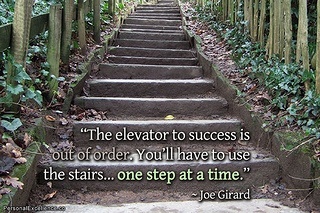Human resources (HR) play a role that can benefit teams of all sizes. Larger teams have a greater need for an individual in this position. With human resources playing such an important role, why are human resources important? What is the function of a human-resource representative? What concerns should a HR representative be aware of regarding team dynamics?
Overview
The role of an individual in human resources is to address the people issues in a business. This function is to serve as an administrator to cover all the systems that affect behaviors of workers. Human resources support leaders in helping followers respond to changes and thus organizations of varying sizes can benefit from an individual in this role.
Typical responsibilities of an individual in human resources comprise recruitment, training and development, benefits, and performance reviews. A human-resource specialist will find success when they are capable of identifying individuals with desirable skills, provide encouragement and support, and be competent to increase retention rates.
Human Resources in Practice
In practice, human resources can boil down to 10 functions. These 10 functions may seem simplistic on the surface, but they play a significant role in building a successful team.
Human-Resource Individuals Tend to Establish First Impressions
Since the role of this position is to identify and actively seek individuals to contribute to the team the human resources representative is likely going to be one of the first people an outsider meets. Moreover, HR is responsible for training; so new members spend time with these individuals at the early stages.
Be Aware of Organizational Fit
Each team and organization are unique. When teams can differentiate themselves, they have a competitive advantage that leaders can leverage. Human resources should seek to identify capable members who can assist the current team if they wish to succeed. This means that human-resource representatives should have internal understanding within the team, so they can make efforts to match potential members with existing members.
Set Standards
Human resources individuals should set standards when they provide training. It is important new team members understand job expectations from the onset. The ideal time to begin to establishing standards is through the employee handbook or manual. Human-resource representatives should explain acceptable standards for communication, attendance, and ethics. Establishing standards helps new team members increase their chance for success.
Understand Intrinsic Rewards to Motivate
As a human resources representative, you are responsible for understanding people and discovering what motivates them. Team members value monetary rewards but people also like recognition for their efforts. Take the time to learn about the intrinsic rewards that motivate people. Leaders can As a human resources representative, you are responsible for understanding people and discovering what motivates them. Team members value monetary rewards but people also like recognition for their efforts. Take the time to learn about the intrinsic rewards that motivate people. As a human resources representative, you are responsible for understanding people and discovering what motivates them. Team members value monetary rewards but people also like recognition for their efforts. Take the time to learn about the intrinsic rewards that motivate people. Leaders can provide incentives when they know their team member motivation.
As a human resources representative, you are responsible for understanding people and discovering what motivates them. Team members value monetary rewards but people also like recognition for their efforts. Take the time to learn about the intrinsic rewards that motivate people. Leaders can provide incentives when they know their team member motivation.
Utilize Technology to Make Systems More Effective
Today, there seems to be a tool with the objective of making processes more efficient to respond to changes in the marketplace. One of the roles of human resources is to train and develop team members. This is not to say an individual in human resources must be capable of utilizing all the tools. However, they should identify key users who they can match with others to improve training and developing.
Remain Open and Responsive
As team supporters, HR representatives should be open and foster dialogue with their team. When problems arise, team members must be able to share grievances, so they feel like individuals whom the team respects. Setting this tone of being open and responsive can be vital to the team culture because there is an increasing need for responsiveness by the customer.
Develop a Discovery and Selection Process
One of the hats that human-resource individuals must wear is the development of a discovery and selection process to create a talent pool. People who work in human resources can leverage social media to create a brand but also call upon supporters and users to fulfill vacancies on the team. They must routinely reach out a hand to find new members who can contribute to the team.
Model of Consistency
Team members desire fairness and consistency. When it comes to policies and procedures, members want to know their application is the same across the board and there are no favorites. They need to know that specific actions will attract positive outcomes. Without consistency, people begin to lose respect and problems can ensue.
Developing Individuals and Matching People with Responsibilities
Everyone has unique skills and HR representatives should try to match people’s strengths with specific responsibilities. In some cases, a person in this position may need to recruit people from other teams in an effort to get the best people. Organizations and teams compete for finite assets, if your team fails to progress, they risk losing in the long term.
Participate in Team Activities
Individuals who participate in team activities learn about the team and potential opportunities. Engaging with the team allows HR individuals to anticipate changing demands. They also help team formation and sustainability of the team’s culture.
Human-Resource Concerns
By: Chris Florence
There are three human-resource concerns that should be under consideration when helping to form a team, and they are demographics, diversity, and skills or qualifications.
Demographics concern the individual characteristics of a team and may include age, sex, or social class. Demographics are a concern because it may influence costs or changing demands from the team.
Diversity refers to distinction within the team. It is not necessary that all teams comprise a great deal of visual diversity. However, organizations and businesses should have a team that reflects the target market. If the goal is to service a market, from a particular demographic, one will likely find more success when the team has a member who matches the demographic.
It is important to understand the law of supply and demand as it applies to staffing. Some jobs require a higher degree of expertise while others do not. When the demand for technical expertise is high and few people possess the necessary skills, human resources representatives need to find manners to provide more compensation. On the other hand, when the demand for technical expertise is low and there are many people available to fulfill the need it may not be necessary to provide as much compensation.
Does your team have a human-resource representative? What other functions does a human-resource representative play on your team? What other concerns should an HR representative be aware of regarding team dynamics?
Resources

